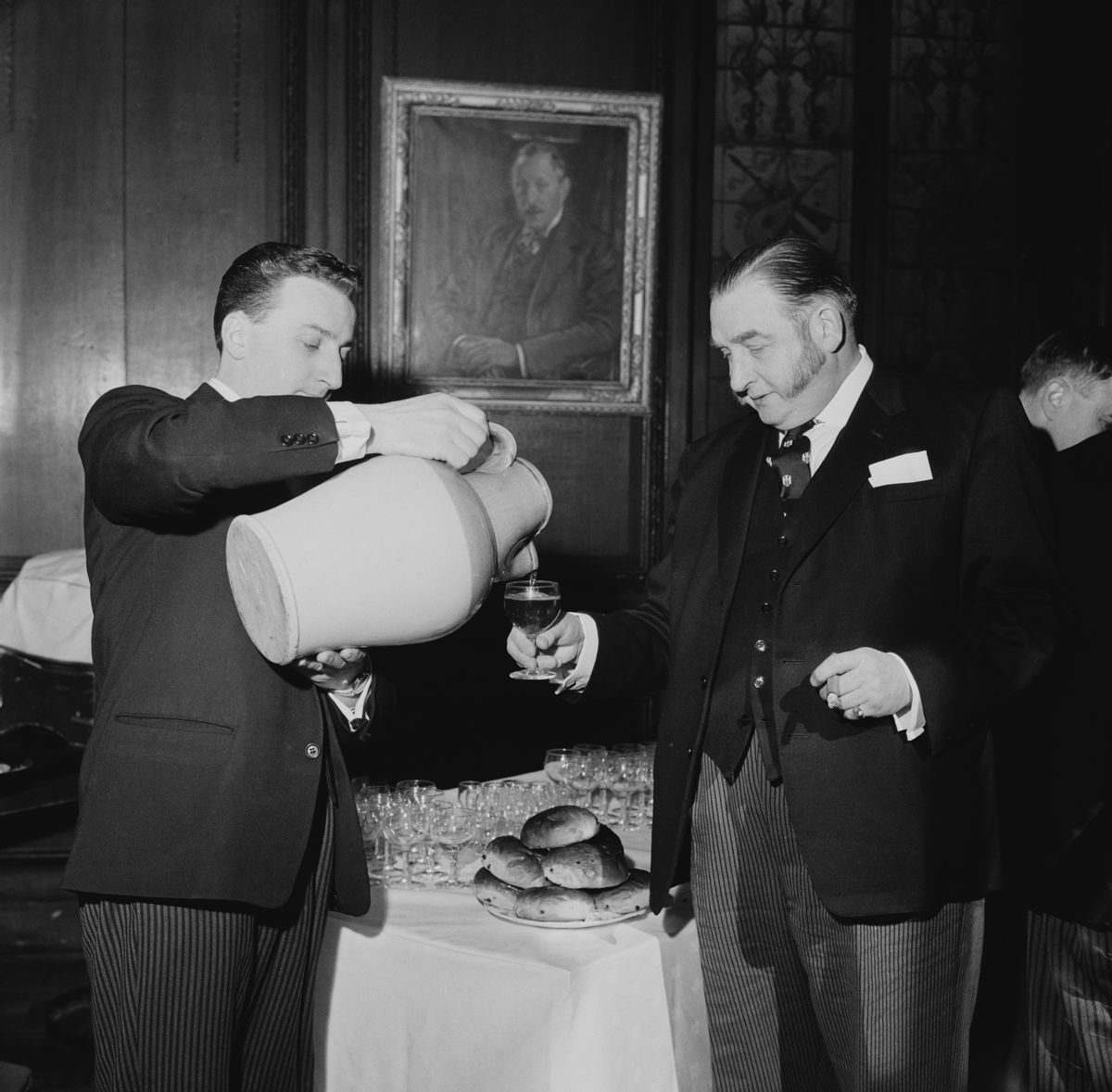The "cakes and ale" legend has been circulating since at least the mid-1950s (when it was printed in Reader's Digest, and attributed to The Lancet, as quoted by United Press International) and is probably much older than that.
Example:
Here is a true story someone found regarding exams at Cambridge University. It seems that during an examination one day a bright young student popped up and asked the proctor to bring him Cakes and Ale. The following dialog ensued:
Proctor: I beg your pardon?
Student: Sir, I request that you bring me Cakes and Ale.
Proctor: Sorry, no.
Student: Sir, I really must insist. I request and require that you bring me Cakes and Ale.
At this point, the student produced a copy of the four hundred year old Laws of Cambridge, written in Latin and still nominally in effect, and pointed to the section which read (rough translation from the Latin):
"Gentlemen sitting examinations may request and require Cakes and Ale."
Pepsi and hamburgers were judged the modern equivalent, and the student sat there, writing his examination and happily slurping away.
Three weeks later the student was fined five pounds for not wearing a sword to the examination.
Variations:
- The setting of the legend is always either Cambridge or Oxford.
- The item the student is allowed to request varies (e.g., glass of port, cakes and ale, a pint, glass of wine).
- The violation for which the student is subsequently fined also varies (e.g., not wearing ceremonial sword to class, not wearing shoes with silver buckles while on university premises).
- The amount of the fine also differs (when specified); it is always some amount of money that would have been considered a stiff fine several hundred years ago (such as two-thirds of a pound) but is a mere pittance in modern-day terms.
- The student is sometimes fined by the proctor immediately upon fulfilling the student's request, and sometimes fined by the university several weeks later. (The former version implies that the student has been outsmarted by a proctor who is thoroughly familiar with the university's laws, old as they may be.)
- One variant form of this legend describes a student who calls for a pint during class but is rebuffed by the lecturer for not wearing a tabard and sword. The student later arrives for the final examination so dressed and receives his pint.
Several ways of viewing this legend spring to mind:
- A "loony laws" type of legend, featuring some bizarre law or regulation made many years ago for reasons long since forgotten that has never been repealed.
- A "mere student outsmarts faculty" class of legend, wherein a student demonstrates his knowledge of university procedures to be superior to that of his learned professors. Of course, the versions in which the student is fined after making his request for not having displaying all the proper period accoutrements turn the tale into the opposite: an "upstart student gets his comeuppance at the hands of his elders" legend.
- A "just deserts" tale, in which some facet of an exploited loophole turns the tables on the exploiter. (See our Cigarson page for a similar example.)
Image caption: Liveryman Arthur Peters of the Stationers' Company receives ale from a jug held by beadle and butler, Douglas Rowland, at the Stationers' Hall in the City of London, during the annual Cakes And Ale Ceremony, 27th February 1963.

